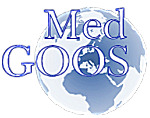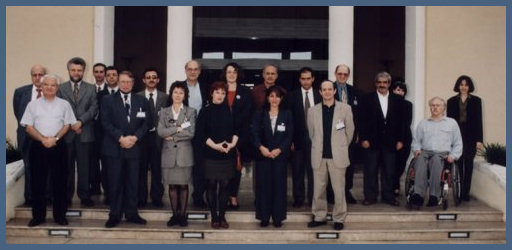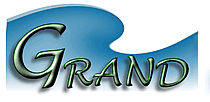 |
The Mediterranean Global Ocean Observing System is a regional alliance founded under the auspices of the UNESCO/Intergovernmental Oceanographic Commission (IOC) to provide a concerted approach and common framework to the planning and implementation of the Global Ocean Observing System (GOOS) in the Mediterranean. |
The MedGOOS aims to build awareness on operational oceanography, promote capacity building and synergise efforts to facilitate the development of an operational ocean observing and forecasting system with regional and coastal scale to the benefit of a wide group of stakeholders and users in the region. It embraces a partnership of 19 members from 16 riparian countries including non-EU countries namely Morocco, Algeria, Tunisia, Egypt, Lebanon, Albania, Serbia & Montenegro, and Bosnia & Herzegovina.
 |
| Participants to the GOOS Capacity Building Workshop, 26th-29th November 1997 - Malta |
The MedGOOS was born in Malta in November 1997 at the IOC Workshop on GOOS Capacity Building in the Mediterranean Region. The MedGOOS Association was then formally established on the 12 th of March 1999 in Rome at a special sesson during the 2 nd EuroGOOS Conference following the signing of the MedGOOS Memorandum of Understanding by the founding members.
The MedGOOS focuses on the regional priorities for operational ocean forecasting and marine meteorology, addresses the related economic and social implications, and guides and assists the riparian states to the harmonious implementation of the Mediterranean ocean observing and forecasting system built on existing elements and based on principles of co-development, co-ownership and sharing of benefits. The MedGOOS targets the upgrading of national systems to the same level of expertise and infra-structure, and stimulates the necessary pre-operational R&D to ensure that GOOS is fully effective when it eventually becomes fully established in the region. View also the following documents – MedGOOS Strategy; MedGOOS Response to the EU Green Paper on Maritime Policy.
The MedGOOS Chairperson, Kostas Nittis , from the Hellenic Centre for Marine Research (Greece), was appointed by IOC at the annual Medgoos Meeting in January 2007. Aldo Drago, from Malta,has served as the MedGOOS Executive Secretary since September 1998. The MedGOOS Secretariat is located in Malta at the IOI-Malta Operational Centre, University of Malta.
The MedGOOS Secretariat provides administrative support and assists in the co-ordination of MedGOOS activities. The Secretariat secures the continuous flow of information related to GOOS and its components among the members. It endeavours to promote training and capacity building opportunities, conferences, seminars, etc. related to ocean monitoring and forecasting in the region, and targets to strengthen the network and bring its components closer together.
Regional Co-operation -Working in Unity in the Mediterranean
An integrated and sustained ocean and coastal observing system needs an enduring collaboration among the neighbouring countries and a strong will to share efforts, resources and knowledge. The early dialogue and the involvement of all the Mediterranean countries in MedGOOS are crucial and vital for its long-term success. The regional dimension of the MedGOOS Regional Alliance ensures that this collaborative venture will bring benefits and opportunities equally to all the riparian coastal peoples.
The MedGOOS members play a leading role as a competent entity for the promotion of GOOS in their country. The coordination role of each member as a national focal point, the establishment of links with the local scientific community, public authorities and stakeholders, and the awareness activities are a main thrust for the implementation of MedGOOS, providing an enabling asset to the future projection into long term commitments at governmental level.
MedGOOS has a strong cooperation with EuroGOOS, with which it shares the European members. In 2007, a Memorandum of Understanding has been signed with EuroGOOS. The Mediterranean Task Team of EuroGOOS and the Mediterranean Operational Oceanography Network (MOON) provide the scientific and operational base for the MedGOOS activities. The MoU opens the way for a stronger relationship between the two GRAs which share a large number of their members. This MoU is expected to facilitate the bridge between north and south. The MedGOOS is building on the strategy, plan and activities of the EuroGOOS task teams and on the pre-operational projects developed under the EuroGOOS umbrella and the various projects funded under the EU Framework Programmes.
MedGOOS has also cooperated with Black Sea GOOS especially in project planning activities like ARENA. The MAMA project framework and concept was used by Black Sea GOOS to prepare and implement ARENA, to which both MedGOOS and EuroGOOS participated.
 |
MedGOOS also puts great importance upon the links with AfricaGOOS as well as with other GRAs. T he EC-funded Specific Support Action entitled GOOS Regional Alliances Network Development (GRAND) which was coordinated by the MedGOOS Secretariat. GRAND brought together all GOOS Regional Alliances (GRAs), with the support of the major international organisations related to GOOS (IOC, JCOMM, I-GOOS). The partnership covered all the oceans on Earth and provided a forum, led by Europe, to harmonise the diverse regional systems within GOOS, to enhance synergies and common practices while advancing the European contribution to the global system. |
GOOS Regional Alliances have different capacities, resources and level of activity, but all seek to establish a global sustained system of observation to predict the state of the marine environment to fulfill their duties in international agreements and to gain practical benefits for a variety of end-users and for public good. GRAND targeted to uphold European competitiveness, on ocean monitoring and forecasting, and disseminate expertise and technology to support the participation of developing countries in the GOOS, and to build linkages with the regional initiatives in ocean forecasting and with related international programming, for a coherent implementation of the global system. GRAND furthermore catalysed the role of the EU in GOOS while contributing to the integration and strengthening of the European Research Area.
A survey in GRAND targeted to obtain information on the nature and extent of key marine environmental issues in the various GOOS regions, and to identify the existing regional arrangements and the related activities of institutes/agencies to address such issues. In the second phase of the survey, the focus was to obtain information on the assets and capabilities currently deployed in terms of ongoing initiatives, methodologies and practices, technological infrastructures and equipment, resources and funding to address the key issues in the GOOS regions.
The large amount of metadata collected in the GRAND WP1 survey are synthesized in a web interface developed by the MedGOOS Secretariat. The information is summarized in the form of lists and charts to allow easy viewing and reference. The web interface forms an integral part of the GRAND website and provides free access to all GRA members, the scientific community dealing with operational oceanography, as well as other interested parties.
Two Training Workshops for GRA managers were organized in GRAND. The main focus of these workshops were to define the GOOS Regional Strategy outline and contents; to initiate technology transfer; and to discuss progress on capacity building.
The key deliverable of GRAND is the GOOS Regional Prospectus, which comprises a strategy to improve the performance of local marine environmental services exploiting the global products of GOOS. The strategy addresses the related technical and management challenges, and identifies the new technologies that can link the global observations to applications required by customers operating at coastal scale such as in the tourism and leisure industries, in shipping and marine transportation, in marine safety and rescue, in fisheries and other areas.
In her concluding remarks as the outgoing MedGOOS Chair, Dr. Vallerga outlined the successful activities in the nine years since MedGOOS was first established in Malta, November 1998. She was presented with a token gift as a sign of deep appreciation for giving her heart and mind to MedGOOS. With her endeavour, the MedGOOS network has grown to 19 institutions from 16 riparian countries, building north and south linkages in one determined venture to promote ocean observations and forecasts in the region.
Response Paper on the proposed European Maritime Policy
In June 2007, MedGOOS and the Mediterranean Operational Oceanography Network (MOON) presented a joint position paper in response to the consultations in connection with the Green Paper on the EU maritime policy. The paper entitled "Internationalising the EU Maritime Policy in the Euro-Med region and building upon Marine Research and Operational Oceanography to write the policy in practice", was presented to the EU Commissioner for Fisheries and Maritime Affairs Joe Borg welcoming the proposed development of a holistic European Maritime Policy.
This document was prepared by the MedGOOS Secretary in collaboration with a drafting team from both MedGOOS and MOON (Mediterranean Operational Oceanography Network). The preparation of this response was initiated in January at the MedGOOS annual meeting in Blanes . The paper highlights the regional approach as a specific requisite for the success of the policy in the Mediterranean . A follow-up to this initiative is envisaged so that the indicated priorities can lead to some concrete actions.